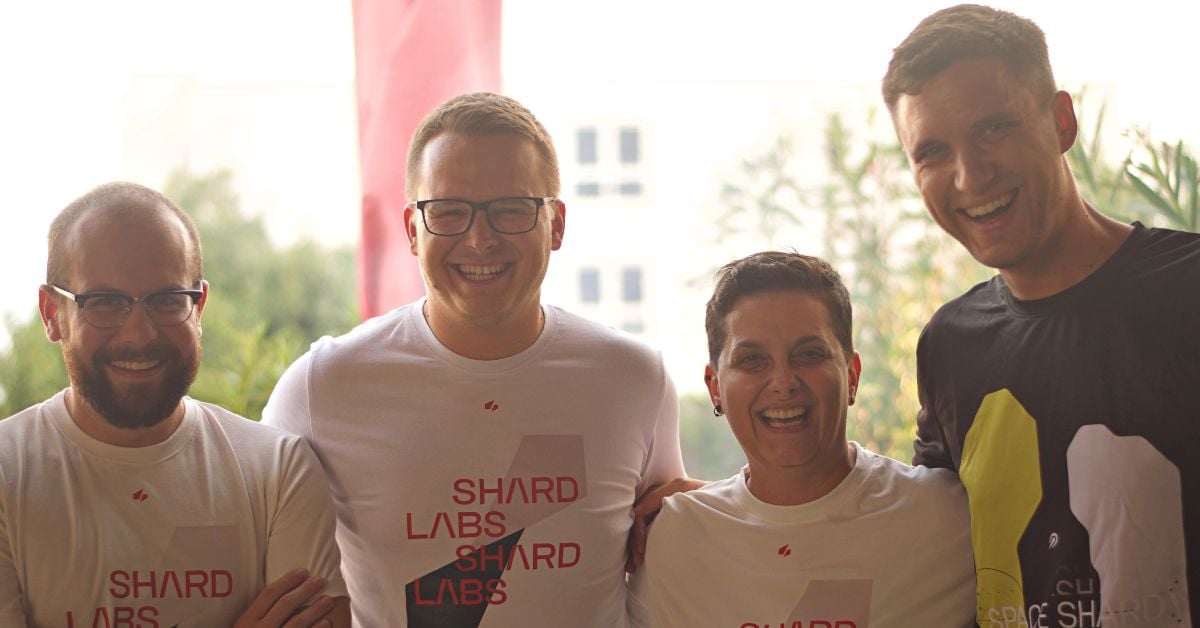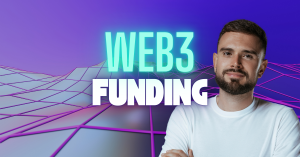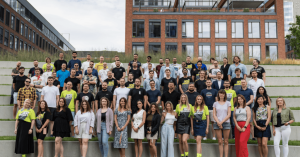While web 3.0, or blockchain-incorporated internet is mostly seen as a concept that will develop in the future, startups, blockchain experts and organizations across the Western Balkans are already using its potential and are working on exciting projects in the domain.
NEAR Balkans is one of them – it is the first major blockchain hub in the region, launched by one of the biggest blockchain technology ecosystems and now focused on strengthening its presence in the region and specifically in Croatia, Bosnia and Herzegovina, Bulgaria, Montenegro, Serbia, North Macedonia and Slovenia.
While most of these technologies are still in their inception, according to blockchain architect and NEAR Balkans advisor Edi Sinovcic, the region has already proven that it has the potential and talent to further develop projects that could also benefit the economies of these countries.
And for NEAR Balkans, the mission right now is how to use this potential and develop the ecosystem through education, hackathons, certifications, project development support, and funding.
“We want to support people from starting out in the space – getting to know what is blockchain, what is NEAR, and so on. After that, we want them to be building on NEAR, incubating, offering small grants, and then accelerating and connecting them to the investors, so they can raise proper rounds and make sustainable products. So it’s kind of a full cycle for us,” Sinovcic told The Recursive during the Infobip Shift Conference in Zadar, Croatia, which featured an area solely dedicated to web 3.0.
When it comes to the early development of this technology, the region already has success stories such as Tempus Finance, Tendery, and Shard Labs.
“Serbia is most developed in web 3.0 – we have a couple of companies that will potentially soon become very important in Serbia, such as Tempus and Tenderly. Croatia is not that developed yet, but with projects such as Shard Labs the ecosystem is maturing, and in the next couple of years it should reach the point where Serbia is right now,” Sinovcic tells The Recursive.
Experts also point out that the Western Balkans are in a perfect position to take advantage of new technologies like blockchain and web 3.0, since most countries have a relatively young population, high levels of internet penetration, and are already doing well when it comes to the development of digital infrastructure.
“Web 3.0 and blockchain development is one of the few industries where the former Yugoslavia region has a strong reputation and leading players in the industry. For example, Tenderly is the industry standard. However, one major issue is that there aren’t many people who know finance and complex financial instruments well. Therefore, we are somewhat underrepresented in the DeFi segment, but from a technological and creative side, we have a lot of quality people in the web 3.0 world,” ecosystem builder Armin Konjalic tells The Recursive.
The benefits that web 3.0 technology brings
According to Sinovcic from NEAR Balkans, the potential that web 3.0 technology has is immense. It can do for the world what the Internet did for it in the 1990s – to transform lives, economies, and societies.
One example is how banks and derivatives market function at the moment, and how web 3.0 could change all of them by democratizing access and participation in decision making.
“When you look at banks or derivatives markets, only a small number of countries and users can access these markets, so they are not democratized. For example, to access the US Stock Exchange from Europe, you can use brokers and so on, or you’d either need €10K euros to invest.
But with web 3.0, you can do this in any part of the world and nobody would care, you could even invest just 50 cents if you want. And you can participate in this market. And what’s more important for the development of this concept is that you’d be invested in the community. You’d have a token which represents your part of the share, and you could use that token to either participate in the governance, decide where this protocol goes and so on, so it’s direct democracy,” Sinovcic explains.

Zagreb-based SpaceShard (powered by Shard Labs) an independent ZK blockchain development agency is one of the companies that is working in the web 3.0 space. According to its SpaceShard’s CTO Ivan Pavicic, while at the moment the biggest use cases for web 3.0 are in the finance industry, there is a big perspective in other industries as well, such as logistics or data privacy.
“There are companies that want to use blockchain and implement it in some use cases like shipping, tracking of goods to ship, and so on. Here I’d also add the emerging tech of zero knowledge. For example, if I am an insurance company, and I want to take a look at clients and their medical history, maybe it wouldn’t be ethical or there would be something that the clients don’t want to share with the insurance company. But, with zero knowledge proofs it is possible for some providers to provide only a part of that data, without giving away any other details. The proof is mathematical, encrypted, it is not something that you can tamper with, and that’s a very powerful idea,” Pavicic tells The Recursive.
While such projects and similar ideas are still in development, the first signs of how web 3.0 can effectively change societies and economies could be seen within the next couple of years, Sinovcic, who is also the CEO of Shard Labs, points out.
“Basically, what is going to happen in the next year or two is that we’re going to incubate some first products, and we’re going to have some really good success stories from the start. And then most people, even those that are skeptics will see that this technology is actually the future. And in four to five years, all of this would become normal,” Sinovcic concludes.








